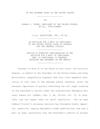Bessent explains exactly why Trump wants quick ruling on tariffs
National News

Audio By Carbonatix
3:09 PM on Thursday, September 4
Brett Rowland
(The Center Square) – U.S. Treasury Secretary Scott Bessent told the nation's highest court that tariffs are the only way President Donald Trump can protect the U.S. from "a major economic and national-security catastrophe."
Trump used a 1977 law that doesn't mention tariffs to reorder global trade through tariffs to try to give U.S. businesses an advantage in the world market. Using tariffs under the International Emergency Economic Powers Act, Trump hit nearly every nation with import duties of at least 10%. Some countries face higher rates, up to 50%.
Before using tariffs, Trump declared a national emergency over fentanyl smuggling and a long-standing U.S. trade deficit that he said was at a tipping point that could lead to financial disaster.
"Due to IEEPA tariffs, six major trading partners and the 27-nation European Union have already entered into framework deals with the United States, accepting tariff arrangements heavily recalibrated in America's favor and agreeing to make approximately $2 trillion of purchases and investment in the United States' economy – with trillions more under negotiation with countries across the world," Trump's legal team wrote in filing with the U.S. Supreme Court.
Two lower courts have already said the 1977 International Emergency Economic Powers Act doesn't give the president unbounded tariff authority.
Last Friday, the U.S. Court of Appeals for the Federal Circuit affirmed a previous lower court ruling, but said Trump's tariffs could remain in place while the administration appeals to the U.S. Supreme Court. In the 7-4 decision, the majority said that tariff authority rests with Congress.
Bessent told the high court that speed is critical.
"Swift review of that decision is necessary to avoid derailing critical ongoing negotiations with our foreign trading partners and threatening broader U.S. strategic interests internationally," he wrote in a declaration.

Motion to expedite 9-3-25
Bessent also said that taking away the tariff authority "gravely undermines the president's ability to conduct real-world diplomacy and his ability to protect the national security and economy of the United States."
Bessent said the appeals court ruling has already hurt the administration's efforts.
"The recent decision by the Federal Circuit is already adversely affecting ongoing negotiations," Bessent said. "World leaders are questioning the president's authority to impose tariffs, walking away from or delaying negotiations, and/or imposing a different calculus on their negotiating positions. The court's ruling has taken away substantial negotiating leverage for the president to achieve the best trade deals for the American people."
Bessent said that if the court forced the president to unwind the deals, it would disrupt financial markets.
"The longer a final ruling is delayed, the greater the risk of economic disruption," he said. "For example, delaying a ruling until June 2026 could result in a scenario in which $750 billion-$1 trillion in tariffs have already been collected, and unwinding them could cause significant disruption."
Bessent added: "If these agreed upon frameworks were unwound and the investments and purchases had to be repaid, the economic consequences would be catastrophic."
Solicitor General D. John Sauer asked the Supreme Court to decide by Sept. 10 whether to take up the case. He also asked for "expedited consideration of the merits to the maximum extent feasible."
The Liberty Justice Center represents the five small U.S. businesses that sued over the tariffs. A group of Democrat-led states also sued, saying they face higher costs. The businesses said the tariffs threaten their ability to do business.
The Texas-based nonprofit has also said it wants a quick resolution and would not oppose the government's motion.
Sauer's proposed schedule calls for briefs to be filed in the case by Oct. 20 and oral arguments set for the first week of November.
New tariffs raised $58.5 billion in revenue between January and June of this year before accounting for income and payroll tax offsets, according to an analysis of federal data from the Penn Wharton Budget Model.
Trump has said he wants to use tariffs to restore manufacturing jobs lost to lower-wage countries in decades past, shift the tax burden away from U.S. families and pay down the national debt.
A tariff is a tax on imported goods paid by the person or company that imports the goods. The importer can absorb the cost of the tariffs or try to pass the cost on to consumers through higher prices.
Economists, businesses and some public companies have warned that tariffs could raise prices on a wide range of consumer products.






